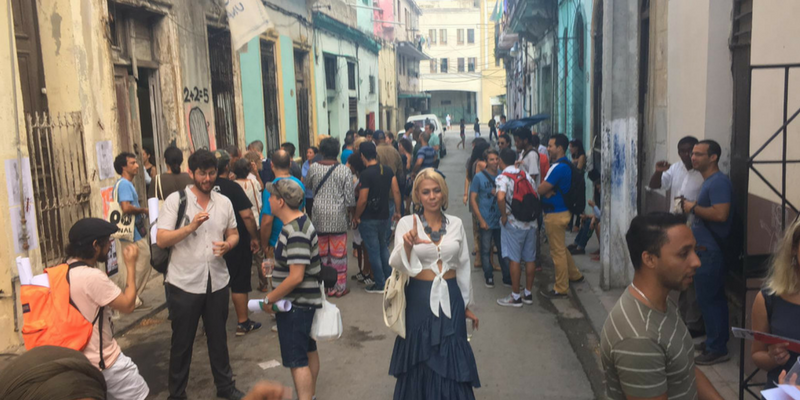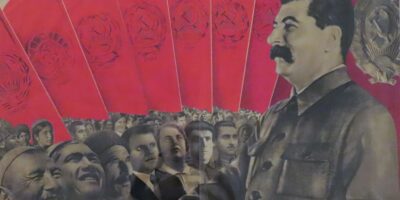Cuban Exile Sues Communist Regime for Expropriating Her Life

Voiceless and unable to lead a free life, Cuban artist and anarcho-capitalist activist Ana Olema left her home country more than six years ago. Her epic journey across eight countries on her way to the United States confronted her with life-threatening situations.
Olema recently returned to Cuba to participate in Bienal 00, an independent art festival where she put on two performances about her years of oppression under the totalitarian regime and Soviet economy. She also talked about the lawsuit she will file against the Cuban state for the expropriaton of her body, and consequently her life. The document argues that the Castro regime took Cubans’ most basic freedoms away and forced them to hide their true identities.
Indoctrination came to her life at the early age of five, when the state prevented her from praticing Yoruba, the family religion. At primary school, she had to publicly vow adherence to communism and promise to follow in the footsteps of Che Guevara, a mass murderer. As a poor 16-year-old, she was forced to leave home to work. The Cuban state provided her with a college scholarship, but she was not able to study nor practice art like she wanted.
The story of Olema’s stolen life illustrates just how invasive the Cuban regime is, and it serves as a warning to those who gush over the Castro brothers from the comfort of the United States. Her lawsuit, filed on the island, highlights violations of more than a third of the human rights that Cuba recognizes through treaties, among them the rights to life, to freedom, to a family, to the freedom of movement, and to choose your own career.
“Anything that our eyes could see, that our noses could smell, that our mouthes could taste, and that our ears could hear had to fit the [communist] ideological framework. Quite literally, the state expropriated my body—our bodies,” she wrote.
As reparation, Olema demands that the Cuban state offer public apologies for infringing upon human rights, that it enact a law guaranteeing individual freedom, and that it build a memorial for all the victims of the communist revolution.
Now an exile in the United States—a nation whose ideals and economy she has come to admire deeply—she doubts the Cuban dictatorship will end with Raúl Castro’s departure from power. But she hopes that her artwork and her lawsuit, albeit symbolic, will raise awareness of the permanent damage that the regime continues to inflict upon Cubans.
Update: the regime has cracked down on the event by arresting a presenter and refusing entry and threatening others. Given fear of arrest, Ana Olema has gone into hiding, and the regime’s police have been to her family home searching for her.









